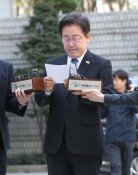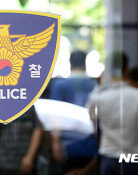Less regulation facilitates large businesses' investment plans
Less regulation facilitates large businesses' investment plans
Posted March. 29, 2024 07:38,
Updated March. 29, 2024 07:38
Hyundai Motor Group, LG Group, and other South Korean large businesses on Wednesday released their massive investment and hiring plans to respond to the rapidly changing landscape of industries across the globe and secure future growth engines. Starting from this year to 2026, Hyundai will invest 68 trillion won and create 80,000 jobs in the domestic market with a focus on future aviation mobility, autonomous driving, robots, and other future-oriented industries. Likewise, LG plans to spend 100 trillion won on the country over the next five years by 2028, with half the investment capital dedicated to AI, biotech, and battery technologies.
Amid the growing concerns over a stagnated low growth with South Korea having grown merely 1.4 percent in the previous year, it is good news that they intend to focus more on domestic investment than on overseas markets. Earlier, Samsung and SK also announced their plans to allocate 500 trillion won and 122 trillion won, respectively, to build mega-sized semiconductor clusters by 2047. Corporate investment and employment efforts will surely address youth unemployment in the country. Hyundai expects to hire 118,000 workers in the domestic parts industry to increase its direct employment effect. LG also looks to add 35,000 to 40,000 new jobs in the local market.
Now, it is the government’s and political leaders’ turn to reciprocate their decisive plans to aggressively increase investment despite business uncertainties. Although the administration has already pledged to remove “killer regulations,” a set of burdensome hurdles to business activities and investments, multiple times, there seems to be little palpable change from the perspective of businesses. According to a survey done this year by the Korea Enterprises Federation of 515 companies with over 30 workers on the payroll across the country, the percentage of respondents expecting a friendlier regulatory system showed a decrease to 15.0 percent from 20.1 percent a year ago.
The government needs to promote great regulatory reform and generous support so businesses can make investments confidently. Most of all, it should start by making amends with Korea-specific, outdated regulatory systems such as the Serious Accidents Punishment Act and the 52-hour workweek system lacking flexibility, which have already been pointed out by the American Chamber of Commerce in Korea as a stumbling block to U.S. business investment. Only by smoothing the way to corporate investment can the country tackle low growth rates and create jobs.







